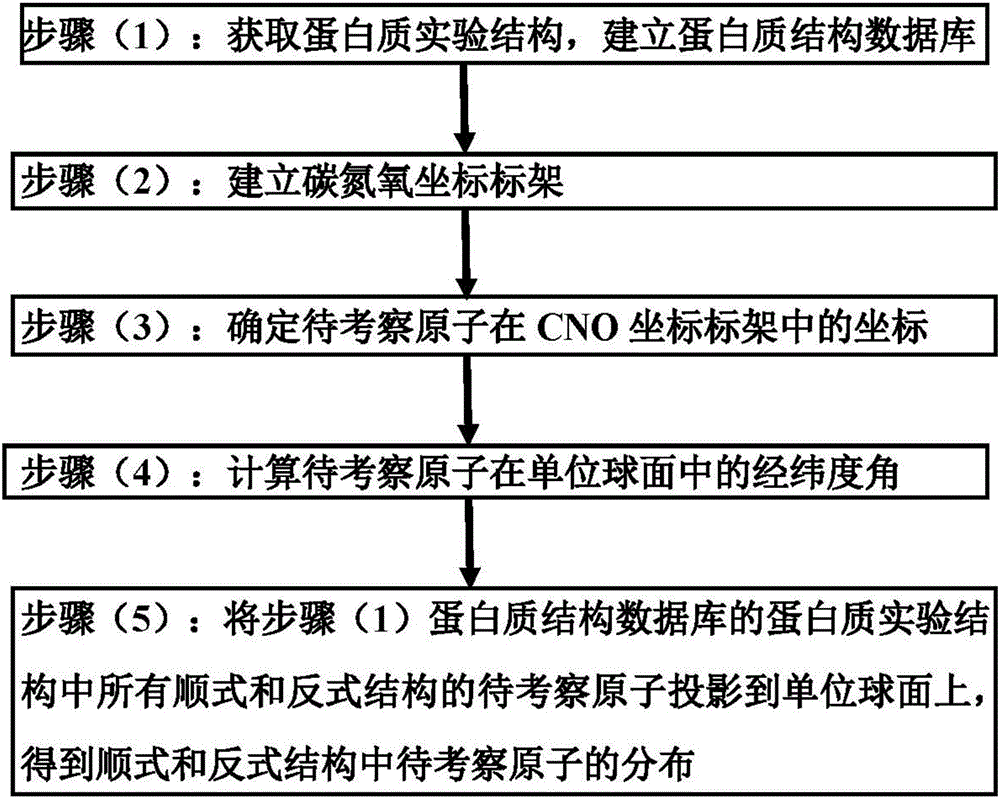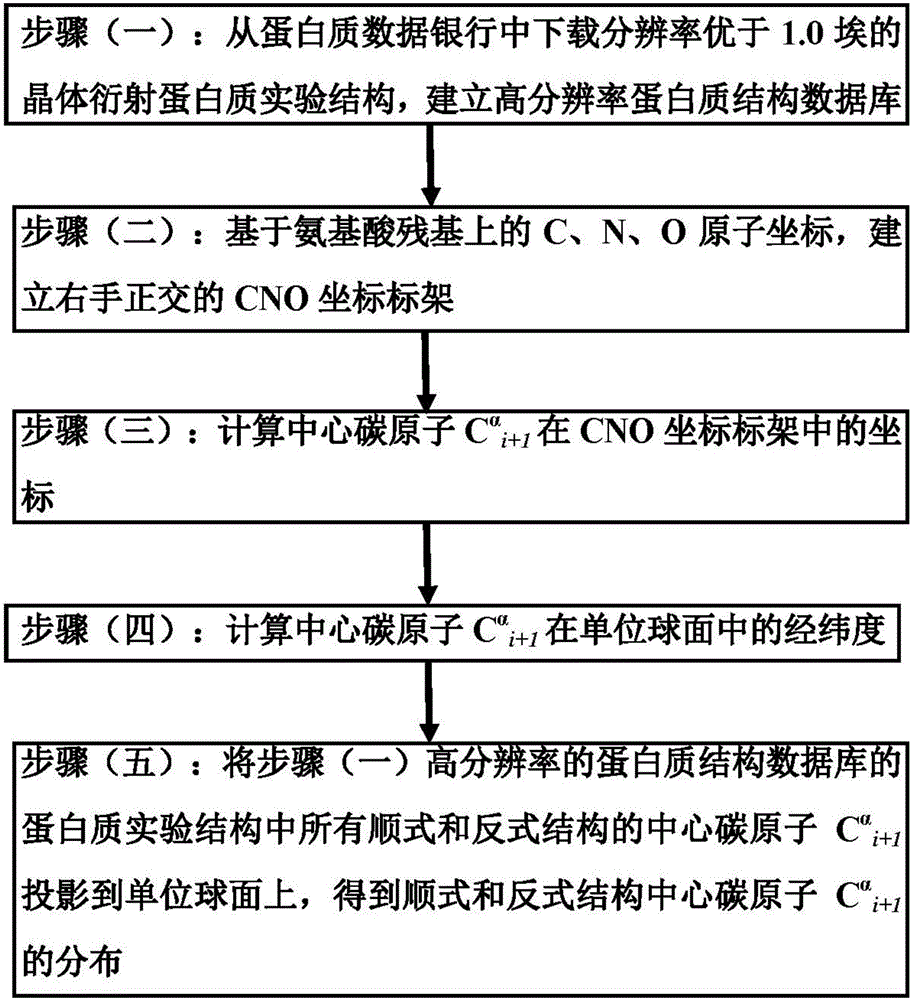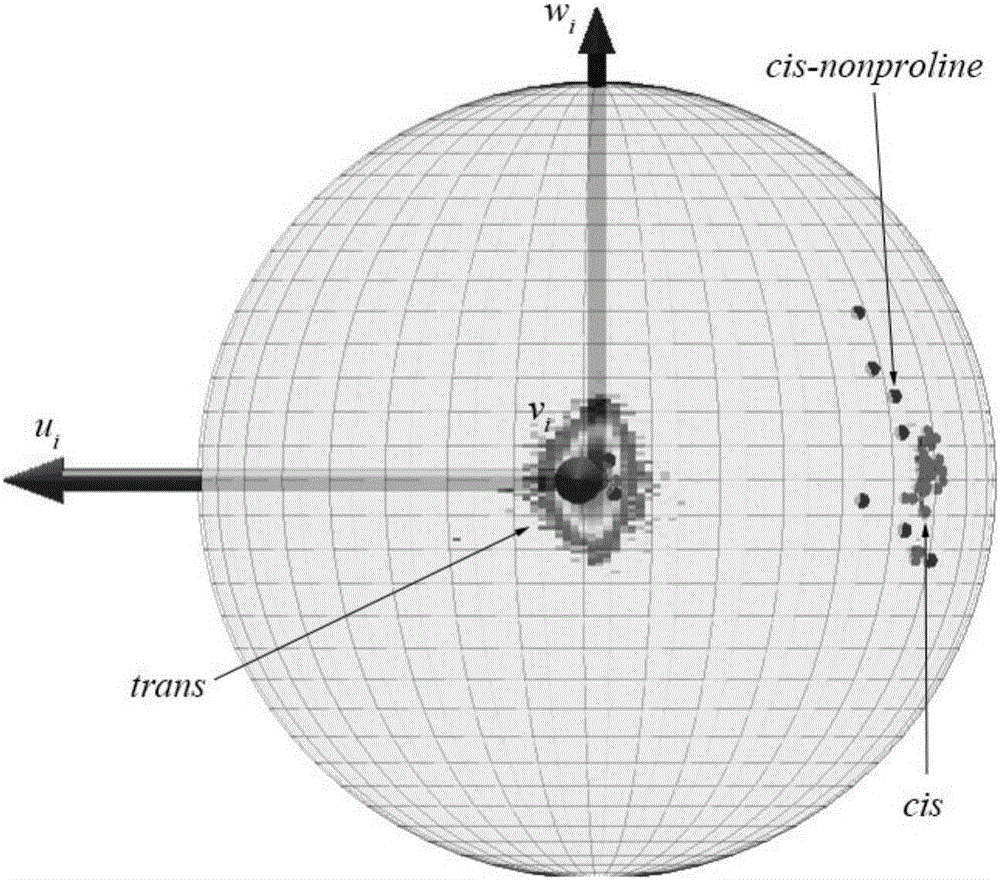Method of statistically analyzing protein peptide bond cis and trans structures
A technology of protein structure and statistical analysis, applied in structure prediction and cis and trans configurational isomerism research, in the field of protein structure analysis, it can solve the problems of lack of precision and limited trans and cis configuration analysis methods
- Summary
- Abstract
- Description
- Claims
- Application Information
AI Technical Summary
Problems solved by technology
Method used
Image
Examples
Embodiment 1
[0060] This example elaborates in detail the "a method for statistically analyzing the cis- and trans-structures of protein peptide bonds" of the present invention. During the specific implementation, it aims at high-precision statistical analysis of the central carbon atoms in the cis- and trans-structures of protein peptide bonds. The flow of geometric features.
[0061] figure 1 A flowchart of a method for statistical analysis of the cis and trans structures of protein peptide bonds. As can be seen from the figure, the method includes the following steps: step (1): obtain the protein experimental structure, and establish a protein structure database; step (2): establish a carbon, nitrogen and oxygen coordinate frame; step (3): determine the atoms to be investigated Coordinates in the CNO coordinate frame; step (4): calculate the latitude and longitude angle of the atom to be investigated in the unit sphere; step (5): convert all cis and trans in the protein experimental st...
Embodiment 2
[0079] In this example, according to the steps of "A method for statistically analyzing the cis and trans structures of protein peptide bonds" of the present invention and the process described in Example 1, the statistical analysis of the side chain C β i+1 Properties of the distribution of atoms in the cis and trans structures of protein peptide bonds and their consequences.
[0080] High-precision statistical analysis side chain C β i+1 The distribution characteristics of atoms in the cis and trans structures of protein peptide bonds, steps A and B are the same as in Example 1 (one) and (two); steps C, D, E are the same as in Example 1 (three), The difference between (4) and (5) is that this embodiment calculates the side chain C β i+1 Coordinates, latitude and longitude of atoms and drawing side chains C β i+1 The atoms are distributed on the unit sphere, and the secondary structure α-helix, α-left-handed-helix, and β-strand are added to the step (5) to determine, an...
Embodiment 3
[0083] In this embodiment, according to the steps of the present invention and the process described in Embodiment 1, the statistical analysis main chain C is specifically described. i+1 The distribution characteristics of atoms in the cis and trans structures of protein peptide bonds, the results are as follows Figure 5 .
[0084] Figure 5 is the backbone C of all cis and trans structures in the protein experimental structure of the high-resolution protein structure database i+1 Distribution diagram of atoms on the unit sphere; in the diagram, the symbol u i 、w i , v i Mark the CNO coordinate frame axis, trans, cis, cis-nonproline point out the main chain C of trans structure, cis structure, and cis structure without proline i+1 Atomic distribution, α-helix, α L -helix, β-strand represents the main chain C corresponding to the helix, left-handed helix, and sheet i+1 Atom distribution position; Figure 5 shows that the main chain C in the trans structure trans i+1 A...
PUM
 Login to View More
Login to View More Abstract
Description
Claims
Application Information
 Login to View More
Login to View More - R&D
- Intellectual Property
- Life Sciences
- Materials
- Tech Scout
- Unparalleled Data Quality
- Higher Quality Content
- 60% Fewer Hallucinations
Browse by: Latest US Patents, China's latest patents, Technical Efficacy Thesaurus, Application Domain, Technology Topic, Popular Technical Reports.
© 2025 PatSnap. All rights reserved.Legal|Privacy policy|Modern Slavery Act Transparency Statement|Sitemap|About US| Contact US: help@patsnap.com



